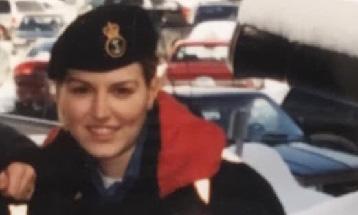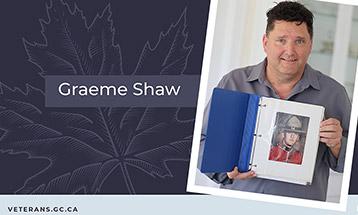Lest You Forget
Do not take your military training for granted. As a Veteran, you can apply many of your military skills to a post service career in business. Corey Shelson offers this advice to any Canadian Armed Forces member transitioning out of uniform and thinking about becoming an entrepreneur and business owner.
Corey joined the military in 2002 as a 16 year old reservist; he left service 13 years later, having reached the rank of Captain in the Regular Force. His service included an eight month deployment to Afghanistan in 2010 as part of Task Force 1 10 (Operation Athena Rotation 9), where he was a combat engineer troop commander in 23 Field Squadron, 1st Battalion, Royal Canadian Regiment.
Today, Corey is founder and leader of 44 North Digital Marketing, a digital marketing agency that helps organizations be found online, generate leads and convert those leads into sales. In this role, he puts to use the personal aptitudes and operational capabilities he gained during his many years of service as a Canadian Army combat engineer. He says the military provided him with three skills essential for any business owner—how to plan, how to sell and how to lead.
How to plan
According to Corey, the Canadian Armed Forces invests significant amounts of time into developing a soldier’s ability to analyze problems, develop options, evaluate these options against success factors and select the most opportunistic path forward. As a combat engineer officer, he used these planning skills to accomplish complex and often dangerous missions.
“I take advantage of the same skills as a digital marketer—this time, to plan how my clients can achieve their business objectives,” says Corey. “The context may be different, but the process is exactly the same.”
How to sell
“I’ve never considered myself to be a salesman,” says Corey. “But as I look back on my time in the military, I realize that a large portion of my job was to sell.”
He explains that selling in a combat environment is similar to getting people to agree and commit fully to a plan. A fundamental part of Corey’s salesmanship was the collaborative discussions he held regularly with the soldiers under his command—hearing their input, encouraging them to contribute to the approach, and getting their early buy-in on the plan.
“This collaboration, which always worked well for me in the military, is the same approach I take to sell to prospective clients,” says Corey. “I don’t push ideas on them. I make clients part of the discussion and collaboration that leads to buy in of a plan we develop together.”
How to lead
“Leadership is the art of influencing others to accomplish a common objective,” says Corey. “Our primary job as combat engineers during the Afghanistan deployment was to help friendly forces move from one point to another, which was complex given the extreme threat of improvised explosive devices. It was like travelling through a minefield everywhere we went. There were bombs by roads, on paths, in fields, in doorways, under stairs, in trees, in culverts—they were everywhere. Leading soldiers in this complex and dangerous environment required me to lead by example, which meant assuming the same risks that I expected the members of my troop endure. It also demanded that I look out for their welfare.”
Corey contends that running a small business puts his leadership skills to the test, especially when it comes to employee retention. According to the LinkedIn Talent Blog, marketing companies have the highest turnover rate of any industry at 17 percent. The turnover rate for all industries is 11 percent. While his skills are put to the test, he is convinced that the qualities—safety, trust and care—that go into building a cohesive combat team also go into nurturing a successful small enterprise.
“Competitive compensation, comprehensive benefits and engaging work are all aspects that lead to employee retention,” says Corey. “But what I have discovered is that caring for your employees and promoting their welfare are by far the most important ways to retain employees. When people feel safe, trusted and cared for, they feel intimately part of the team and they will work diligently to surpass company objectives.”
Never take for granted the skills you gained from your service.
An entrepreneur at heart
Corey earned the Joint Task Force Afghanistan Commander’s Commendation for actions while leading his troop’s high intensity counter insurgency operations. He also came home with an injured knee, which turned out to be a mixed blessing. While recovering, he had time to read an article in The Globe and Mail about a Veteran who earned a Masters of Business Administration while transitioning to post service life.
“This Veteran’s experience struck a chord with me,” says Corey. “I had achieved a lot of what I wanted in the military—serving my country, deploying in a combat role, leading soldiers on operations and making it home. I also realized I had always been entrepreneurial, going back to my days as a young kid who started and ran a lawn care business. So I applied to the Richard Ivey School of Business at Western University and got in. It’s not only a great school, but also a supportive academic environment for Veterans.”
I’ve never considered myself to be a salesman. But as I look back on my time in the military, I realize that a large portion of my job was to sell.
Success is a joint operation
Along with enjoying classes on entrepreneurship, Corey says he took a liking to courses on marketing. He turned that pleasure into a business. Four years after his transition from the military, Corey has built a digital marketing agency that has gone from a one man show to a flourishing outfit that employs a team of full time staff and operates out of two cities.
Corey is the first to admit he did not achieve success on his own. He credits the Toronto chapter of the Treble Victor Group for giving him access to a network of successful Veteran business people. Corey takes advantage of the CFone card to get reduced fares on VIA Rail and a discounted membership rate at GoodLife Fitness. He also points to support, in the form of a Disability Award, he received from Veterans Affairs Canada to compensate him for injuries suffered while in uniform.
According to Corey, this support is the tip of the iceberg. Veterans who want to be entrepreneurs should explore Prince’s Trust Canada Operation Entrepreneur. Apply for the Veterans Affairs Canada Education and Training Benefit. Take advantage of any nearby tech accelerator. And consider post service education, such as an entrepreneurship boot camp or business program at an institution that values the skills embodied by Veterans.
“These resources will help you combine what you are good at and what you like to do to create a business,” says Corey. “Above all, never take for granted the skills you gained from your service.”
Date published: 2020-01-10




